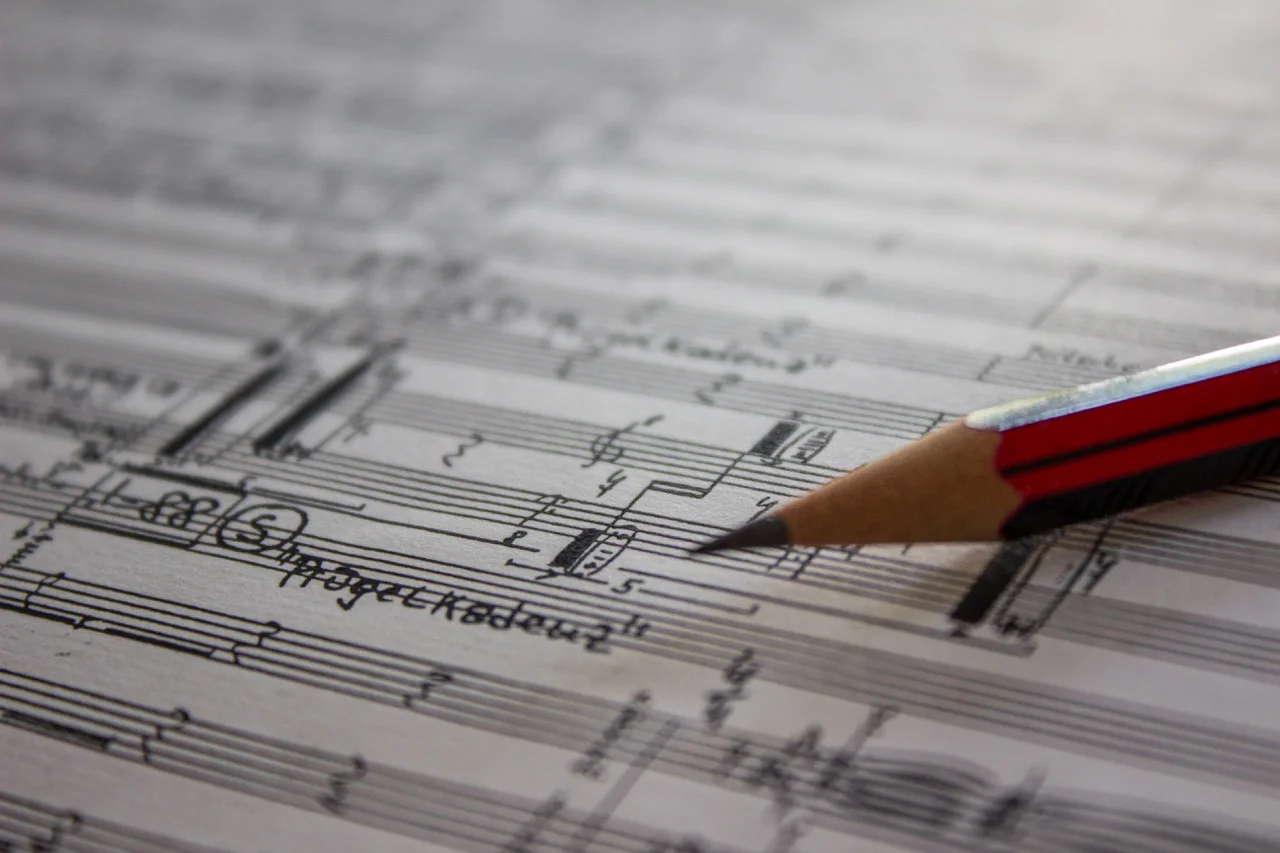A Theory of Music Writing
The theory, history, and analysis of musical notations have naturally always been at the core of musicological research efforts; after all, the epistemological roots of musicology lie in the philological examination of written musical texts. This genuinely philological interest is joined by the demands of musical practice, which aims in diverse ways to give concrete form to written music by performing it. But not only do musicology and its subdisciplines profit in manifold ways from inquiry into questions of music writings. In addition, the “turn” in perspective for a theory of music writing initiated in this research project, and its focus on phenomena that have yet to receive due attention, has fundamental relevance for diverse branches of research in the humanities and cultural studies:
(I) Of particular importance for historical musicology is, besides the prospect of gaining insight on creative processes, the opportunity to gain a more sophisticated perspective on the referential context of word, text, and writing.
(II) Music philology stands to benefit from an approach that can be applied to a wide range of authors in view of comparative principles of sketch research, thus receiving an important building block for a general theory and methodology.
(III) For general philology, insights from musical sketch research have enormous methodological potential, particularly with regard to questions of dimensionality and internal temporality; it should also be mentioned that musical sketch research has long since developed know-how in the widely discussed field now known as material philology due to the good results obtained from the critical investigation of types of paper, water marks, and other aspects (types of music paper can generally be identified with much more precision than common paper, allowing the material nature of the paper to be taken as a solid basis for textual genetic argumentation). Here, and also in view of its considerable experience in handling individual typefaces, music philology research may be expected to make a significant contribution to the general discourse of writing.
(IV) In the area of cultural studies, there are diverse links with regard to the cultural technique of the writing of music, particularly in the discourses of cultural memory and cultural identity.
(V) Creativity research will profit from the source-based research efforts of the project on the one hand, and receive, on the other, important information on “writing-motivated” creative processes from our research on the operative capabilities of writing.
(VI) Debates in media history and media studies will find valuable ideas for considerations on (musical) notation as specific media of the mind in the theory of music writing to be developed in this project; in addition, significant inspiration may be expected for these research disciplines from the examination of new digital possibilities, as the evolution of audiovisual technologies is currently a major focus of technical development.
(VII) With the interests of fundamental research in the humanities and cultural studies in mind, the project also aims to establish an interdisciplinary vocabulary enabling nuanced scholarly communication on questions of music writing.
(VIII) The basic theoretical impulses a theory of music writing can contribute to a general theory of non-phonographic writing concepts have already been discussed in detail in the first part of the proposal.




